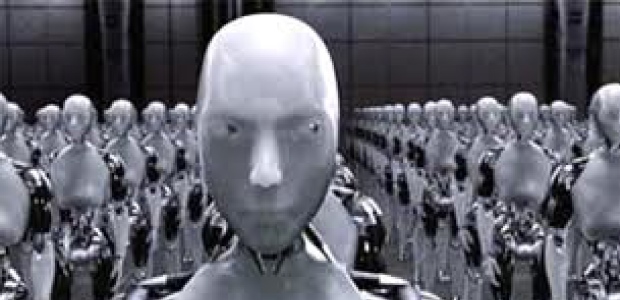
White House AI Report Calls for Stronger Workers' Safety Net
Significant education and training investments will be needed as artificial intelligence changes the nature of the work and skills demanded by the U.S. labor market, it says.
A new report published by the White House on Dec. 20, "Artificial Intelligence, Automation, and The Economy," offers advice for the incoming and future presidential administrations on how to prepare U.S. workers for workplaces transformed by AI. It predicts that responding to the economic effects of AI-driven automation "will be a significant policy challenge for the next Administration and its successors."
"Whether AI leads to unemployment and increases in inequality over the long-run depends not only on the technology itself but also on the institutions and policies that are in place," the report's executive summary states, adding that AI should be welcomed for its potential economic benefits, even though the benefits won't necessarily be distributed evenly across society.
The new report was prepared by a team from the Executive Office of the President, including staffers from the Council of Economic Advisers, OMB, and Office of Science and Technology Policy, and is signed by leaders of those departments and agencies, including Megan Smith, U.S. chief technology officer.
The report is a follow-up on an October 2016 Obama administration report titled "Preparing for the Future of Artificial Intelligence," which recommended that the White House publish a report on the economic impacts of artificial intelligence by the end of 2016. The new report contains recommendations stemming from the Future of AI Initiative announced in May 2016.
The report recommends three strategies for preparing new workers, assisting workers who lose their jobs, and addressing income inequality. They are:
- Invest in and develop AI. Government has an important role to play by investing in R&D, it says, citing cyberdefense and the detection of fraudulent transactions and messages as areas for advancement in AI.
- Educate and train workers for jobs of the future.
- Aid workers in the transition. This strategy calls for "steps to modernize the social safety net, including exploring strengthening critical supports such as unemployment insurance, Medicaid, Supplemental Nutrition Assistance Program (SNAP), and Temporary Assistance for Needy Families (TANF), and putting in place new programs such as wage insurance and emergency aid for families in crisis."
"There is substantial uncertainty about how strongly these effects will be felt and how rapidly they will arrive," White House Communications Director and Senior Policy Advisor Kristin Lee wrote. "It is possible that AI will not have large, new effects on the economy, such that the coming years are subject to the same basic workforce trends seen in recent decades—some of which are positive, and others which are worrisome and may require policy changes. At the other end of the range of possibilities, the economy might experience a larger shock, with accelerating changes in the job market, and significantly more workers in need of assistance and retraining as their skills no longer match the demands of the job market. Given available evidence, it is not possible to make specific predictions, so policymakers must be prepared for a range of potential outcomes. At a minimum, some occupations such as drivers and cashiers are likely to face displacement from or a restructuring of their current jobs."